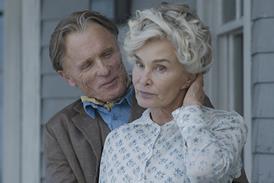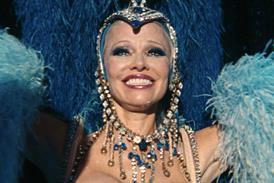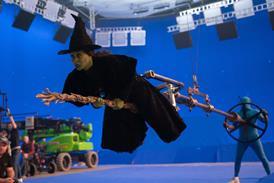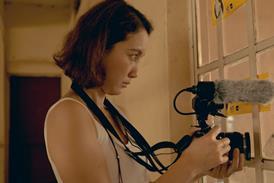Dir: Carlos Reygadas. Mexico-Spain. 2002. 122 mins.
Carlos Reygadas's visionary and impressive feature debut announces the director as an exciting new talent. It is also highly uncompromising: Reygadas states that he's interested in film as a way of creating sensations rather than of making a statement or telling a story, and Japon's stately pace and wilfully enigmatic story (even the title is unexplained) will divide critics and limit its audience. Entrepreneurial arthouse distributors should be able to steer it towards audiences primed for Mexican cinema by the recent success of Y Tu Mama Tambien and Amores Perros, though it's unlikely to match the box-office of either of these.
The opening scenes introduce a middle-aged man, whose name is never disclosed (Alejandro Ferretis), walking through the desert. Here he meets a group of hunters who, unperturbed by his revelation that he intends to kill himself, take him to a remote mountain village. Enquiring after somewhere to stay, he's sent to Ascen, a very elderly widow (Magdelena Flores) living high on a hill. Her cabin is simple, with no running water, but she makes him welcome. As the days unfold slowly, he becomes immersed in the local landscape and culture and, after a couple of half-hearted attempts, his mission to shoot himself ebbs away.
Slowly, Japon builds up an earthy, visceral portrait of rural life. The end credits contain the obligatory disclaimer that no animals were harmed while making it, although several scenes, including a puppy being teased into yapping out a song and a long early shot of the still-living head of a decapitated bird, may (as with Amores Perros) attract the attention of censors. Other sequences, such as a long shot of a stallion mounting a mare, are curiously tender.
Not much else happens in the first two-thirds of the film. As Ascen and the man gradually get to know each other, he plays her music, shows her a book of paintings and even shares a joint with her. Despite her lack of education, she's receptive to these new experiences. When her home is threatened by a nephew who has inherited her barn and arrives one day to dismantle it stone by stone, the man attempts to prevent it.
Japon is punctuated by cryptic moments when he is caught eyeing up Ascen's body. But it's still extremely sudden and disconcerting when, around the 100 minute mark, he announces that he is leaving the following day adding that, before he goes, he needs to have sex with her - presumably to express his new-found lust for life. Astonishingly, she agrees. Their intimate scene is filmed with modesty and gentleness, but some will find it exploitative.
The film's non-professional cast, featuring local people full of zest and unselfconscious humour, goes a good way to allowing Reygadas to get away with all this: Flores, in particular, is remarkable. Ferretis, a friend of the director's parents, has a strong physical presence, but his character (who may or may not be an artist) is left deliberately undefined. The vagueness of his emotional journey will be, for many audiences, the film's main frustration and makes it seem at times like a brilliant but hollow stylistic exercise.
Reygadas reworked the film after the international rights were picked up at the Rotterdam Festival, using the extra funding (the official budget is $800,000) to hone its technical polish. And indeed, Japon looks and sounds terrific. It's shot in bleached-out colour in a process called Super-Cinemascope, and blown up from 16mm to 35mm, a technique which combines the epic vistas of Scope with a mobile, often hand-held camera. Reygadas cites Tarkovsky as an inspiration and his visual influence shows in the very long takes, including a breathtaking, swirling ten-minute closing shot.
The sound design is also exceptional, evoking the subtle tapestry of noises to be heard in even the most remote and peaceful location. The well-chosen and judiciously used music track includes Shostakovich, Bach and the experimental Estonian composer Arvo Part.
Prod co: Nodream Cinema
Int'l sales: The Coproduction Office
Prod: Reygadas
Scr: Reygadas
Cinematography: Diego Martinez Vignatti
Prod des: Alejandro Reygadas
Eds: Carlos Serrano Azcona, Daniel Melguizo, David Torres
Main cast: Alejandro Ferretis, Magdelena Flores, Martin Serrano



















No comments yet